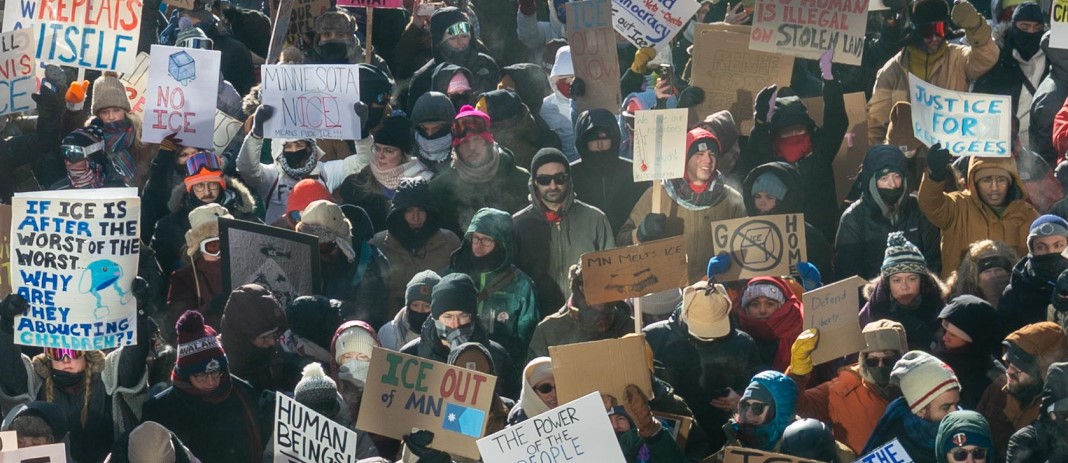Showing 2,937 results

James Goodwin | February 2, 2026
To the extent that people think about the U.S. Environmental Protection Agency (EPA) at all, they likely think of an institution that works to safeguard our health and well-being, and that of our environment. So, The New York Times made quite a splash recently when it reported that the agency had adopted a new policy under which it would stop considering the health benefits of two of the most harmful and pervasive air pollutants: fine particulate matter and ozone.

Brian Gumm, Bryan Dunning, Catalina Gonzalez, Federico Holm, James Goodwin, Sophie Loeb, Spencer Green | January 29, 2026
One of the core beliefs of the Center for Progressive Reform is that our collective problems require collective solutions. One of the reasons we embrace the administrative state is that it provides a uniquely powerful institutional forum within our constitutional system of government in which to put that belief into practice — and was indeed created for doing so. That vision has not always lived up to its full potential, of course, and building a government that lives up to that vision is a focal point of the Center’s work. What is currently happening with the violent occupation of Minneapolis and other cities across the United States by U.S. Immigration and Customs Enforcement (ICE), Customs and Border Protection (CBP), and other militarized civilian administrative agencies represents a categorically different problem, however.

Sophie Loeb | January 28, 2026
Two policy briefs published by the Center in recent months explain that even before the second Trump administration and the 119th Congress launched their broadsides against the Inflation Reduction Act (IRA), the scale and pacing of decarbonization was already lagging at investor-owned utilities. Most customers in the U.S. are served by investor-owned utilities. Due to their complicated mix of historical industry capture and political power, information asymmetries in the regulatory context, the profit motive of energy production and distribution, and tax policy, IOUs are often disincentivized from advancing an equitable clean energy transition. Our policy briefs explore several alternatives to the IOU model as part of a just transition to clean energy.

Alejandro Camacho | January 27, 2026
The world’s ecosystems have been subject to an increasingly dangerous cocktail of stressors from land and ocean over-development, invasive species, and pollution. But rather than stem the tide of these harms, the Trump administration has resurrected several regulatory changes to the Endangered Species Act designed to stifle species’ protections and provide land developers even more power to destroy invaluable ecosystems.

Daniel Farber | January 26, 2026
At its core, the unitary executive theory (UET) says that the president can fire anyone in the executive branch for any reason or no reason. Although the UET purports to be based on originalism, it has become clear that the U.S. Supreme Court has no interest at all in examining the history. Supreme Court conservatives think complete presidential control is simply the ideal way to run the government. The deep flaws in that theory are now becoming apparent.

Daniel Farber | January 9, 2026
In 2025, President Donald Trump rolled out new initiatives at a dizzying rate. That story, in one form or another, dominated the news. This year, much of the news will again be about Trump, but he will have less control of the narrative. Legal and political responses to Trump will play a greater role, as will economic developments. Trump’s anti-environmental crusade may run into strong headwinds.

Hannah Wiseman, Seth Blumsack | December 15, 2025
As projections of U.S. electricity demand rise sharply, President Donald Trump is looking to coal – historically a dominant force in the U.S. energy economy – as a key part of the solution. In an April 2025 executive order, for instance, Trump used emergency powers to direct the Department of Energy to order the owners of coal-fired power plants that were slated to be shut down to keep the plants running. But there remain limits to the president’s power to slow the declining use of coal in the U.S.

Daniel Farber | December 11, 2025
A recent U.S. Office of Management and Budget (OMB) memo proclaimed the Trump administration’s commitment to “deregulating at an unprecedented scale.” To advance that agenda, the memo tells agencies to put a thumb on the scale in favor of rollbacks. In contrast, most lawyers and economists would say that regulation and deregulation are subject to the same rules. Sometimes, the conventional wisdom is right.

Madison Condon | December 3, 2025
In Free Gifts, Alyssa Battistoni traces the concept of the “externality” across the past century. This history begins in 1920, when the economist Alfred Pigou observed how private market transactions could impose uncompensated harms on third parties, such that the prices of goods failed to reflect their true (social) cost. Fortunately, he argued, these external costs could be rectified by government intervention: adding a tax equal to the social cost, which would cause market trading to “internalize” the harm and produce the optimum amount of the activity in question. Free-market advocates viewed such externalities as a rare exception to the general rule of the wisdom of the market. As Battistoni describes, however, this would change in the coming decades.